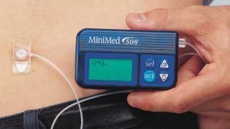Some facts about how Ebola spreads:
WHEN IS EBOLA CONTAGIOUS?
Only when someone is showing symptoms, which can start with vague symptoms including a fever, flu-like body aches and abdominal pain, and then vomiting and diarrhea.
HOW DOES EBOLA SPREAD?
Through close contact with a symptomatic person's bodily fluids, such as blood, sweat, vomit, feces, urine, saliva or semen. Those fluids must have an entry point, like a cut or scrape or someone touching the nose, mouth or eyes with contaminated hands, or being splashed. That's why health care workers wear protective gloves and other equipment.
The World Health Organization says blood, feces and vomit are the most infectious fluids, while the virus is found in saliva mostly once patients are severely ill and the whole live virus has never been culled from sweat.

The Texas Department of State Health Services said Sunday that a health-care worker who provided hospital care for the first patient to die from Ebola in the United States has tested positive for the virus. The worker, who was not identified, was wearing full protective gear while attending to the patient during his second visit to the hospital, according to a hospital official. If the diagnosis is confirmed, it would be the first known case of Ebola being transmitted in the U.S.
WHAT ABOUT MORE CASUAL CONTACT?
Ebola isn't airborne. Dr. Tom Frieden, director of the Centers for Disease Control and Prevention, has said people don't get exposed by sitting next to someone on the bus.
"This is not like flu. It's not like measles, not like the common cold. It's not as spreadable, it's not as infectious as those conditions," he added.
WHO GETS TESTED WHEN EBOLA IS SUSPECTED?
Hospitals with a suspected case call their health department or the CDC to go through a checklist to determine the person's level of risk. Among the questions are whether the person reports a risky contact with a known Ebola patient, how sick they are and whether an alternative diagnosis is more likely. Most initially suspicious cases in the U.S. haven't met the criteria for testing.

HOW IS IT CLEANED UP?
The CDC says bleach and other hospital disinfectants kill Ebola. Dried virus on surfaces survives only for several hours.





